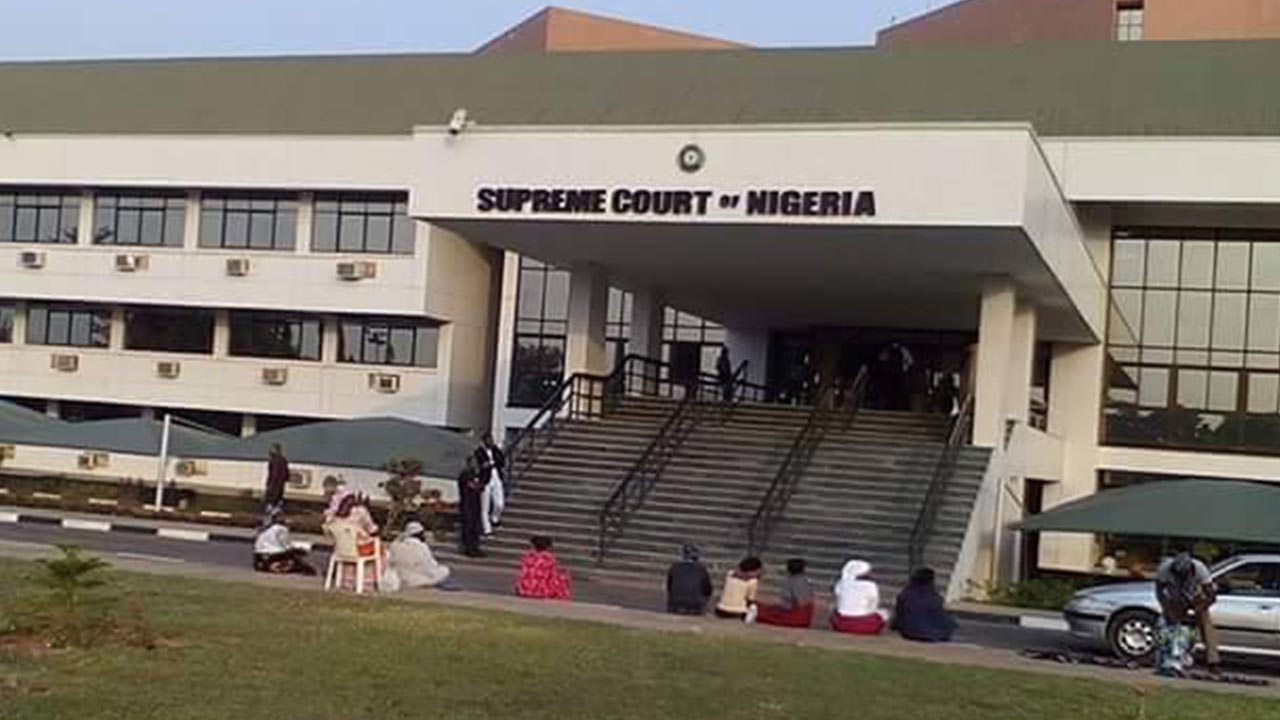
The statement issued the other day by the Supreme Court of Nigeria warning Nigerians against undue criticisms of its judgment, Chief Justice of Nigeria, Justice Olukayode Ariwoola, and their Lordships of the court is undoubtedly unprecedented, perhaps in the entire history of the court. The tradition has always been that judges, especially Supreme Court Justices, are to be heard and hardly to be seen.
It would appear that the court’s statement, coming outside of any proceedings in the hallowed chamber of the court, is tantamount to showing itself, and, some have stated, baring its fangs. However, their Lordships have gone through, or still going through the tradition of wearing thick cloths against public criticism which in the past has not dented the revered image of the apex court. It is important nevertheless that the court observe caution so that it does not send a wrong message that it is unduly sensitive to, or not ready to tolerate public criticism, particularly of their judgments.
In a fairly long statement titled ‘Be mindful of unwarranted attacks on the judiciary,’ issued by its Director of Press and Information, Dr. Festus Akande officers, the Supreme Court said that insinuations that its justices were bought over “by some unknown and unseen persons” was nothing short of “a bizarre expression of ignorance.”
The statement was a tacit reference to the court’s recent judgments in the high-profile political cases of Lawan V Machina and Godswill Agbabio V Independent National Electoral Commission (INEC) and others, in which the court endorsed Akpabio and Lawan as candidates for the Senatorial seats of their constituencies even though they were not available for the primaries on May 28, last year, as they were at the time contesting for the presidential primaries of their party, the All Progressives Congress (APC).
Since the Electoral Act does not support their desire, many Nigerians considered the court’s verdict as controversial and have criticized them as such.
But in response, the Supreme Court urged their attackers to channel their grievances to political parties who could not manage their affairs well and ended up having about 600 cases from the party primaries alone; and that the court was duty bound to adjudicate on the matters brought before it, to the best of its ability and in accordance with the law. “We have made it abundantly clear on different occasions that judicial officers are neither political office holders nor politicians that should be dressed in such robes. Our silence must not be mistaken for weakness or cowardice.
Certainly, every Nigerian citizen has an inalienable right to express his or her opinion without any encumbrance; but even in the course of expressing such fundamental right, we should be circumspect enough to observe the caution gate of self-control in order not to infringe on another person’s right,” stated the court, adding:“So, for anyone in their right frame of mind to insinuate that some unknown and unseen persons have bought over the justices is a bizarre expression of ignorance, which definitely has no place in law or even in the realm of pedestrian reasoning.” The court also emphasised that its silence must not be taken for weakness or cowardice
The court’s reaction is certainly surprising. It is granted that judicial independence accords the Supreme Court the freedom to decide disputes and interpret the Constitution and law in accordance with legal principles and a sense of justice, no matter whose ox is gored; However, the Supreme Court should be reminded that it is accountable to the people in terms of its overall performance and in meeting the justice needs of the people in a timely and efficient manner.
It should, therefore, interpret the law in a way that fulfills the needs and aspirations of the Nigerian people, as envisioned in sections 13, 14 (1)(2)(a)(b)(c) of the 1999 Constitution. It must not only dispense justice but also be seen to manifestly dispense justice. This is why Lord Hewart, the then Lord Chief Justice of England, laid down the dictum in the case of Rex v. Sussex Justices, [1924] 1 KB 256, that “it is not merely of some importance but is of fundamental importance that justice should not only be done, but should manifestly and undoubtedly be seen to be done.”
Therefore, the Supreme Court ought not to be surprised that its decisions, particularly in the cases of Ihedioha V Hope Uzodimma and recently Lawan V Machina and Akpabio V INEC and others, are evoking excoriating public criticism and perceived somewhat as perverse. The decisions show that the Supreme Court is slavishly adhering to technical legalisms and formalism at the expense of substantial justice.
Although Akpabio and Lawan did not contest senatorial primary elections in their respective constituencies as a result of their involvement in the Presidential Primaries of the All Progressives Congress (APC), the Supreme Court ordered the INEC to recognise them as candidates for the February 25 elections. Justice is rooted in confidence and perception.
The essence of the need for justice to be manifestly seen to be done was also observed by Master of the Rolls, Lord Denning, in Metropolitan Properties Co (FGC) Ltd v Lannon when he stated: “Justice must be rooted in confidence, and confidence is destroyed when right-minded people go away thinking: ‘The judge was biased.’” To date, the public constantly refers to Imo State Governor, Hope Uzodinma, who came fourth in the last Imo State Gubernatorial Election, as the “Supreme Court Governor,” because they feel that the Supreme Court was wrong in imposing him on the people of Imo State.
The Supreme Court should not be afraid of public criticism. Criticism of judges has a long recorded history, dating back to Biblical times. For example, in the Acts of the Apostles, St. Paul lampooned the judges who subjected him to punishment without trial, even though he was a Roman citizen. Even judges criticise their brother judges. Lord Denning once said, “We do not fear criticism, nor do we resent it.
For there is something far more important at stake; it is no less than the freedom of speech itself. It is the right of every man, in parliament or out of it, in the press or over the broadcast, to make fair comment, even outspoken comment, on matters of public interest. All we ask is that those who criticise us should remember that, from the nature of our duties, we cannot reply to criticisms. We cannot enter into public controversy. We must rely on our conduct itself to be its own vindication.”
To be continued tomorrow.






